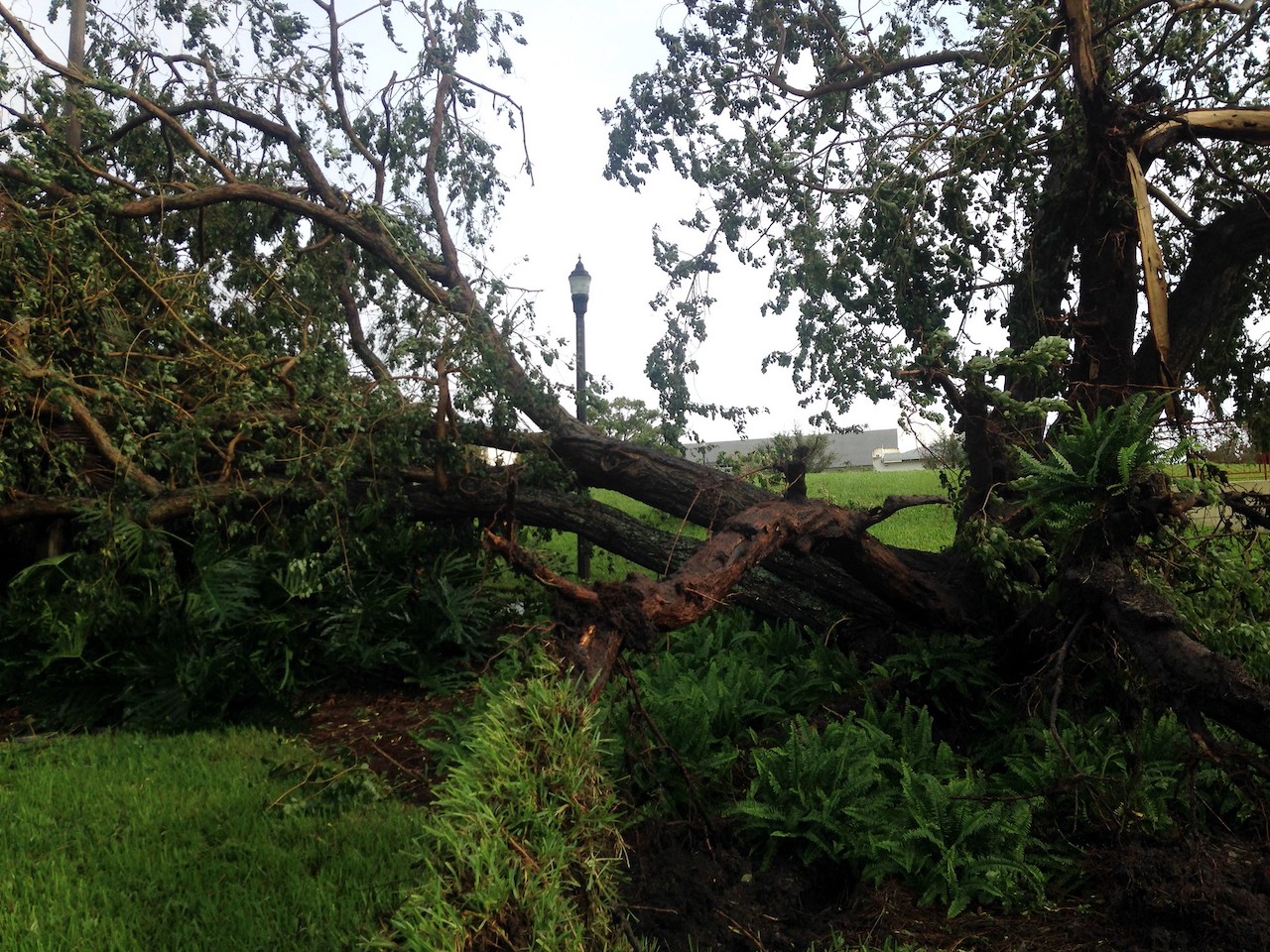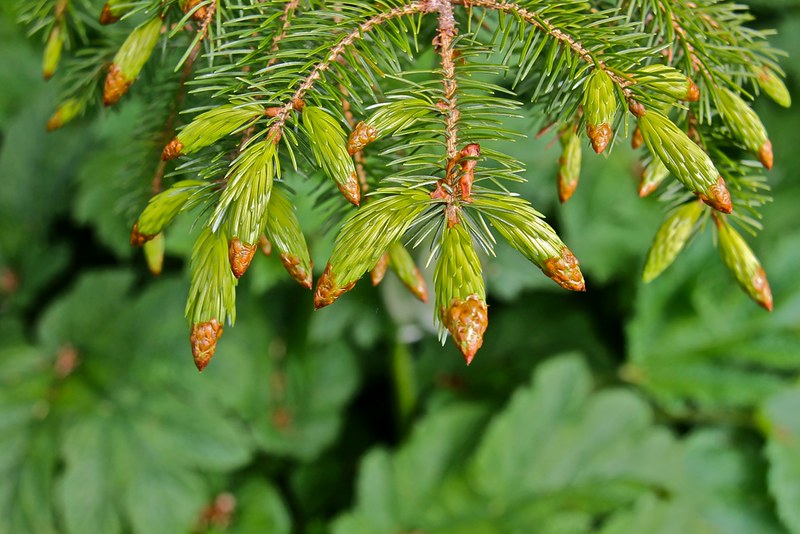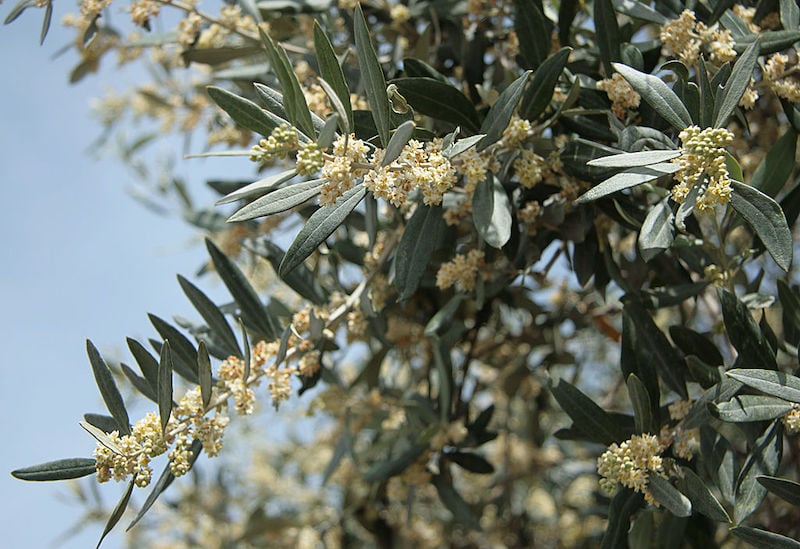
Phoenix is a lovely city, but as you probably know, it gets hot. In fact, high temps can average as much as 104 degrees in the summer months. Despite the heat and the dry climate, many plants and trees thrive here. But there are a few that don’t – or if they do, they still shouldn’t be a part of your Phoenix tree canopy. These worst trees include ones that people still plant even though they don’t grow well here, trees that grow too well (and are considered invasive), and ones that can wreak havoc on your allergies.
With the help of Michael Chamberland, assistant agent ANR/urban horticulture for the Maricopa County Cooperative Extension, we’ve compiled a list of the six worst trees to plant in Phoenix. So before you hit the local nursery, take a look at this list to make sure you know what trees to avoid.
1. Sitka Spruce

Surprisingly, the Sitka spruce shows up some in yards around Phoenix. It’s a beautiful evergreen tree, no doubt. In fact, the Sitka is the largest spruce tree in the world. Not only is it magnificent, but it also has a high strength-to-weight ratio and its wood is often used to make pianos, guitars, harps and violins. But as great as it is, it just doesn’t do well in the hot Phoenix climate – it’s actually the state tree of Alaska!
2. Sissoo Tree

The Dalbergia sissoo (Indian rosewood) tree is often found in nurseries around Phoenix. But for most homeowners, this choice (pictured above) is a bad one.
As Chamberland shared with us, “The sissoo tree grows large and is often provided insufficient space. But it is most notorious for the way it will sprout new trees from its roots. Cut down a sissoo and new trees will begin popping up where its roots have spread.” So if you plant this one, and decide one day to take it out, with its many roots, you’ve definitely got a lot of work ahead of you!
3. Queen Palms
Palm trees are popular in Phoenix, but even though they are known for growing well in hot climates, not all of them thrive in hot and dry weather. The queen palm is a good example of this. According to Chamberland, these palm trees suffer in the Phoenix climate and are much better off in the soil and humidity of places like Florida.
4. African Sumac
The African sumac is an invasive tree that you should avoid planting in Phoenix. It makes small fruits that birds love to eat. But as you know, fruit has seeds. After these birds eat the fruit, they eventually eliminate what they don’t need, including the seeds. Chamberland warns that bird droppings with African sumac seeds germinate readily and produce even more of these unwanted trees in yards and gardens. Avoid this species of trees or you may find yourself continuously removing little versions of it.
5. Olive Trees

Olive trees grow very well in the hot, dry Phoenix climate. But the problem is that they cause allergies. According to Chamberland, they have been “noted for wind-blown pollen which causes allergies for many people. These trees have been banned from planting in some municipalities.” So even if you don’t suffer from allergies, you will not be able to plant this one, according to Phoenix’s landscape regulations. There are cultivated varieties that make little to no pollen. But keep in mind that these cultivated, yet legal, varieties are typically fruitless. So if olives are what you want, you’ll have to buy them at your local grocery store.
6. Mulberry Trees
Another tree that wreaks havoc on those who suffer from allergies is the mulberry tree. These trees are hardy, low maintenance, and can adapt to many different climates, including that of Phoenix. However, as with the olive tree, planting new mulberry trees is illegal in Phoenix as well as other parts of Arizona. So don’t do it.
What Should You Plant in Phoenix?
While you should avoid these six trees, you still have plenty of tree options that thrive in the Phoenix climate. Mesquite trees, ironwoods, acacias, ashe, elm, and pistache are just a few of the choices depending on your yard and area. And of course, numerous types of palm trees grow well here too.
Talk to a Phoenix landscaping expert if you need help selecting plants or trees for your landscape.
Main image credit: Dalbergia sissoo (Indian rosewood), Malcolm Manners, CC 2.0.